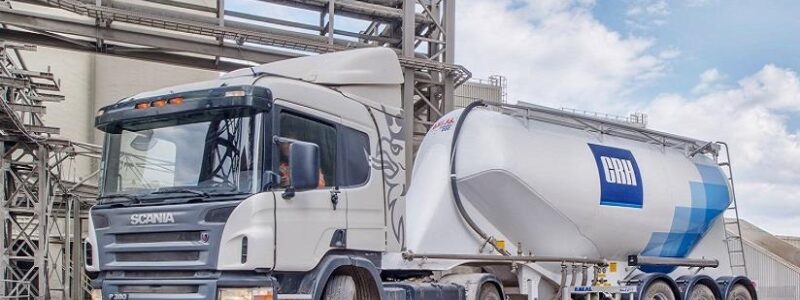
The Antimonopoly Committee of Ukraine (AMCU) has set the transfer of 25-28% of shares in PrJSC Dickergoff Cement Ukraine to an independent investor as a condition for CRH to buy two Buzzi cement plants, the committee’s website reports.
As reported, in June 2023, the Italian cement producer Buzzi, listed by the National Agency for the Prevention of Corruption as an international war sponsor, through its subsidiary Dyckerhoff GmbH, reached an agreement to sell part of its Eastern European business to the Irish CRH group, including Ukrainian assets in the form of two cement plants – Volyn Cement (Zdolbuniv, Rivne region) and Pivden Cement (Vilshanske, Mykolaiv region).
The AMC has been considering CRH’s application for concentration since September 2023.
According to the published terms, CRH must, within nine months from the date of the announced concentration, sell or otherwise transfer shares (stakes) in the amount of 25% to 28% of the authorized capital to a third party not related to CRH UKRAINE B.V. with veto rights (to ensure blocking of key management decisions of the supreme management body of the holding company). It is expected that the European Bank for Reconstruction and Development will become such an investor, as in December 2023 CRH signed a mandate letter with the EBRD on the joint acquisition of the assets of the Italian company Buzzi in Ukraine.
In addition, CRH will also be obliged to report regularly to the AMCU for five years, in particular, on production volumes and selling prices in the domestic market.
It is expected that CRH will invest in the acquired plants, expanding and modernizing their production facilities, preserving jobs and improving working conditions for employees.
As reported, in 2023, the total volume of cement produced in Ukraine increased by 37% year-on-year to 7.4 million tons. In January-March 2024, the companies that are members of the Ukrcement association increased their cement production by 46.3% compared to the same period in 2023, up to 1 million 477.9 thousand tons of cement.
According to the Ukrcement Association, Ukraine’s cement production potential is currently 13.6 million tons of cement, while current financial and human resources suggest consumption of 12.5 million tons. He believes that despite the ability of Ukrainian enterprises to fully cover the market’s needs, it makes sense to plan to expand production.
According to Valeriy Korbut, director of Khmelnitskzalizobeton, one of Ukraine’s largest reinforced concrete plants, investments and modernization of enterprises always increase competition in the market. This, in turn, makes the product better and more affordable. That is why it is important to attract investments in the cement industry today to be ready for recovery.
Viktor Hushel, Commercial Director of Budindustriya-1, a concrete producer, states that, with a focus on recovery projects, it is necessary to invest in cement production right now.
CRH has been operating in Ukraine since 1999. Since November 2021, its cement enterprises in Ukraine have been operating under the Cemark brand: Podilskyi Cement JSC (Khmelnytskyi region), Cement LLC (Odesa), and Mykolaivcement PrJSC (Lviv region).
CRH’s separate business in Ukraine is the production of concrete and reinforced concrete products. PoliBeton Energo’s Bila Tserkva concrete goods plant is a specialized enterprise that produces power transmission towers. PoliBeton’s concrete hub in the north of Odesa was included in the CRH 2020.
Since 1999, the company has invested about $500 million in Ukraine. In particular, since the beginning of the full-scale invasion, CRH has invested $80 million, including $34 million in the construction of a cement terminal in Kyiv region.
CRH is the world’s leading manufacturer of building materials. The company employs about 71,000 people at its 3,200 facilities in 28 countries. It is the largest building materials producer in North America and Europe. The company is also represented in Asia. CRH American depositary shares are listed on the New York Stock Exchange.